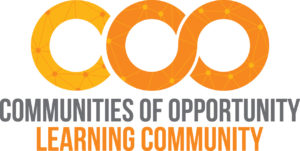Seattle Indian Services Commission
About
The Seattle Indian Services Commission (SISC) is a government entity (Public Development Authority) and was formed to carry out programs to expand housing, job and income opportunities, enhance recreational and cultural opportunities; and to improve the overall living conditions of American Indians and Alaska Natives in King County.
Website: seattleindianservices.org
CREST Representative: Jody Olney (she/her)
Why did you join CREST?
I joined CREST to improved my perspective around real estate and the development process and to connect with local community leaders pursuing development, to inform SISC's Native Village affordable housing project.
If you are working on a project, what is the project, where is it located, and who is it for? What is the vision and purpose of your project?
The Seattle Indian Services Commission is working on an affordable workforce housing project to include an early learning center, workforce training, and a hall of ancestors to highlight the important work of Native leaders in the Pacific Northwest. The Pearl Warren Building, at 12th and Weller in Little Saigon, will come down and the Native Village will be built as early as 2024. The project will primarily seek to serve Native workforce families, with unit sizes ranging from studios to three bedrooms. Reversing and preventing displacement and improving connection within the Native community and neighborhood.
What are you proud to have accomplished so far related to your project or related to your community stewardship of land efforts?
I am proud of the development team we’ve brought together which enabled us to apply for funding in 2019. Although the project wasn’t funded, we received meaningful feedback about timeline, shifting the project’s footprint, and design elements to reconsider. Participating in CREST workshops has helped me rethink outreach methods and reminds me there are several organizations figuring out and navigating this process.
What are the next steps for your organization in realizing your project vision?
This year was originally focused on outreach to neighbors and local businesses in Little Saigon. COVID has tabled this work until it is safe to have in-person meetings. Instead, I have been gathering information about the early learning component of the project and working with the development team to revise project renderings to respond to feedback received from the Office of Housing. SISC will continue to pursue funding and improve awareness about the Native Village project.
What support and expertise are you looking for?
We’re looking for fundraising support and thought partners, including feedback about what will make the project efficient and responsive to community needs. Including building out the activities of the Commission to ensure the project’s success.

TraeAnna Holiday, CREST cohort member from Africatown Seattle:
"I am so honored to be a part of what Puget Sound Sage is doing in this city. They brought together 20 organizations who may not have known each other, and together we are taking progressive models that are happening across the nation to reform and develop our spaces, have ownership in our spaces, create and rebuild our communities, and reclaim what has been taken from us. I represent Africatown Seattle, and if you know of what the Central District has gone through - it has suffered a great deal of gentrification, inequity and displacement. Africatown is working hard on the ground to develop buildings that are bringing our communities back.
For me, this is very personal. My family was displaced in 2003 and my parents had to buy a home in Federal Way. I have never known of Federal Way before. I grew up in the Central area, and it was all I knew for my whole life. It was so heartbreaking to my mother for us to have to move. We are one family, but displacement has affected so many more. This is why I’m so excited to be a part of this cohort. With the work of Puget Sound Sage, I am learning more on how to do this in a progressive way, ensure that we keep affordability for our communities and for our people, and to come back to spaces that we grew up in that we know and love.”
